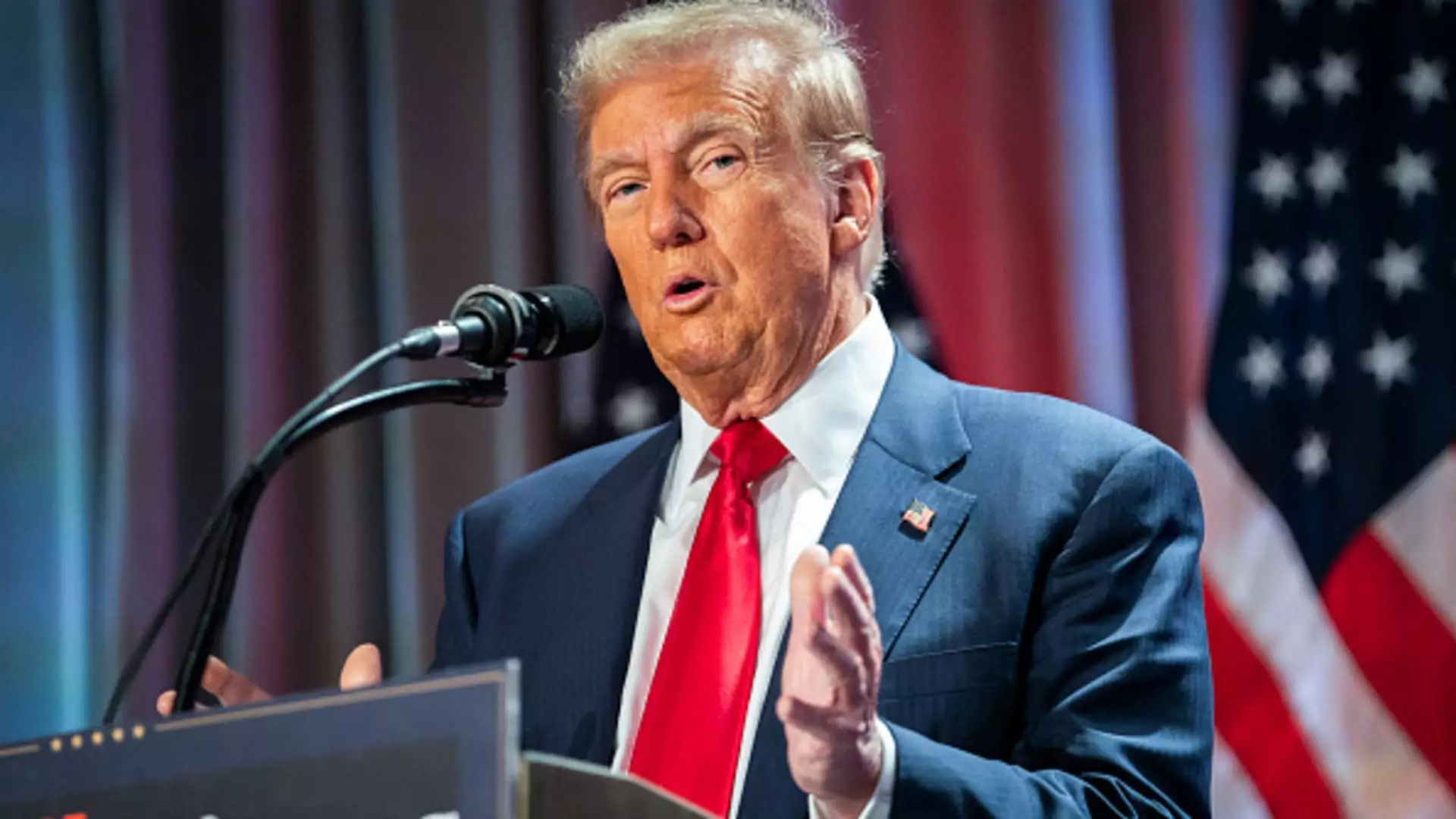As the economic landscape shifts with the impending policies of President-elect Donald Trump, investors are facing a myriad of challenges. John Davi, the CEO of Astoria Portfolio Advisors, is particularly cautious regarding the potential inflationary effects that Trump’s tariff agenda may introduce. In a recent commentary on CNBC’s “ETF Edge,” Davi emphasized the need for strategic investment choices in the wake of these developments. “It’s crucial to assess each opportunity in the context of the new administration’s economic policies,” he stated.
Davi’s insights spotlight a fundamental aspect of investment strategy: adaptability. As he articulates the potential risks associated with large-cap industrials, he advocates for a pivot toward small-cap industrials as a sounder investment choice. Small-cap companies, typically more agile and focused on the domestic market, could emerge as more promising options if trade policies tilt in favor of domestic production.
Following the election, the Russell 2000 index, which benchmarks small-cap stocks, has shown a healthy uptick of approximately 4%. This market movement indicates that investors may be aligning with Davi’s perspectives on the advantages of smaller firms in an evolving economic climate. The potential for pro-growth and pro-domestic policies under Trump’s administration appears to resonate with market participants, reaffirming confidence in small-cap investments.
Davi’s strategy also underscores a broader narrative: the idea that smaller companies often have greater capacity for growth within a supportive domestic policy framework. This perspective encourages a reevaluation of traditional investment paradigms, particularly favoring those sectors that may benefit most from the anticipated policy shifts.
Furthermore, Davi expresses a firm commitment to domestic investments, a stance reinforced by his view that the U.S. economy could be poised for growth over the next couple of years. “We’re overweight the U.S. I think that’s the right playbook in the next few years until the midterms,” Davi remarked, demonstrating confidence in the domestic market’s resilience and opportunity. This strategic choice reflects not only a preference for U.S. investments but also an acknowledgment of the risks that come with international exposure amidst global uncertainties.
However, while Davi advocates for a focused domestic investment strategy, his warning about fixed-income securities is equally crucial. He highlights the potential pitfalls related to the increasing budget deficit, advising caution for bondholders. His comments draw attention to the significance of interest rates in the current environment, especially following a 3% rise in the benchmark 10-year Treasury yield post-election.
John Davi’s insights offer a nuanced perspective on navigating the complexities of the market amidst political change. His focus on small-cap stocks, commitment to domestic investments, and cautious outlook on bonds establish a balanced investment approach that aligns with anticipated economic trends. As investors prepare for a landscape marked by tariff discussions and fiscal considerations, Davi’s strategy may serve as a guiding framework for those aiming to secure growth while managing risk in the coming years.

Leave a Reply